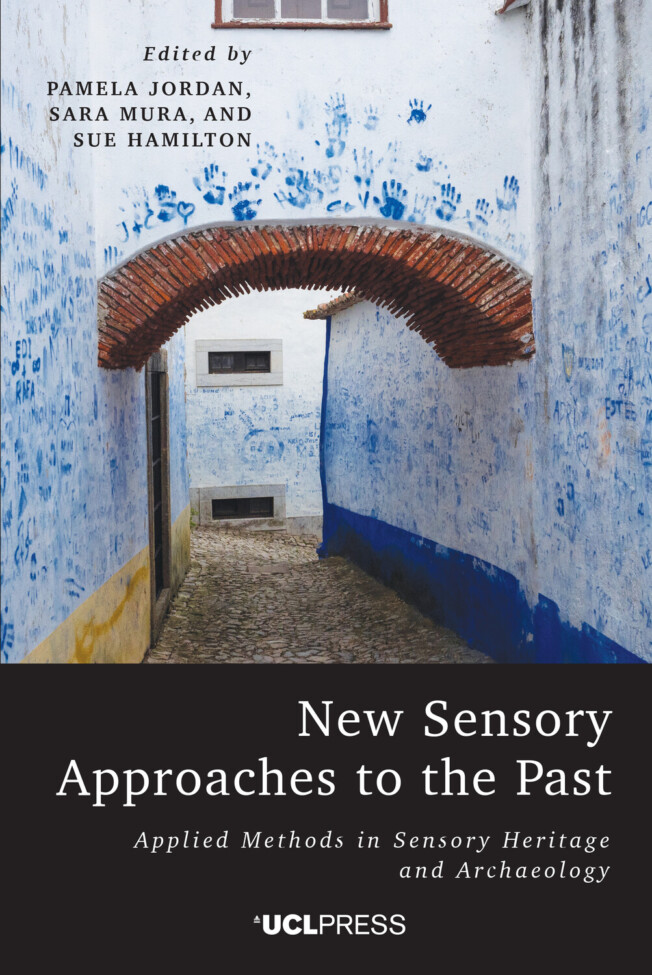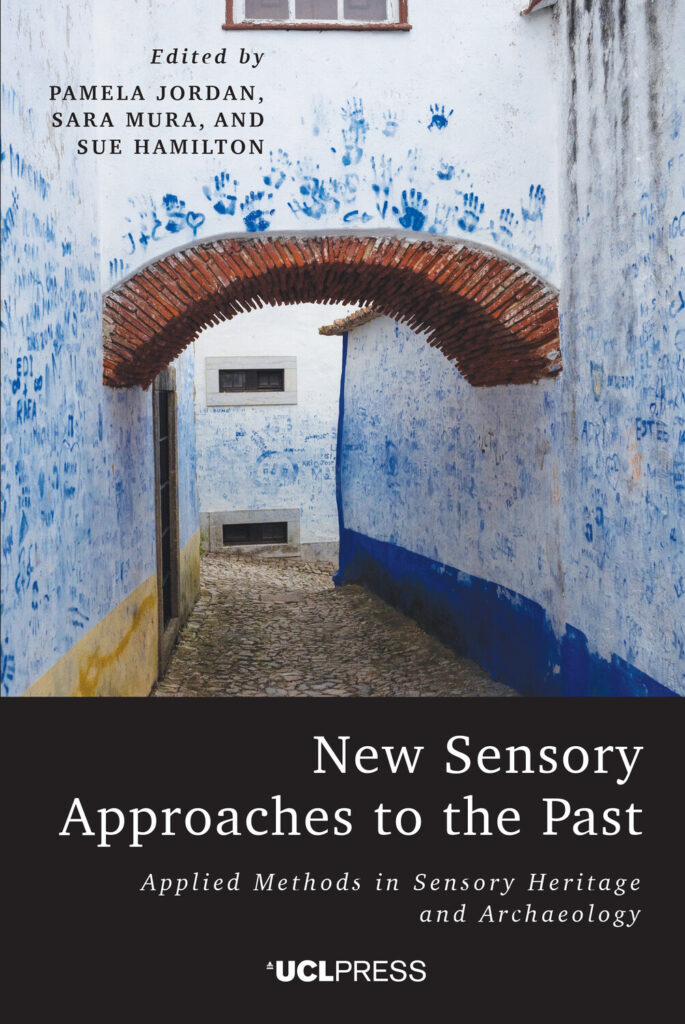
New Sensory Approaches to the Past
Applied methods in sensory heritage and archaeology
Pamela Jordan (Editor), Sara Mura (Editor), Sue Hamilton (Editor)
New Sensory Approaches to the Past assembles a series of research projects investigating cultural environments through the lens of the senses. The book presents the latest approaches to sensory archaeology and heritage research that aim to understand the lived experience of past inhabitants. Interdisciplinary case studies carry out investigations in three different registers: personal and embodied, teamwork and collective responses to the historical environment, and digital reconstruction. An international cast of contributors includes archaeologists, architects, sociolinguists, military experts, cultural studies scholars and acoustics specialists, with research sites spanning Palaeolithic rock art to a 1960s North American fairground. Descriptions and analyses of sensory in-situ investigations offer methodological transparency with the visual analysis that is common in archaeology and heritage assessments is placed alongside ethnographic techniques, landscape survey, sound recording, preservation advocacy work and various forms of digital reconstruction. This interdisciplinary approach harmonizes research terminologies across fields, fostering a comprehensive understanding of sensory-based studies and the methods used to carry them out. The book revitalizes familiar concepts with new insights and provides a platform to examine and resolve interdisciplinary ambiguities, making it an invaluable resource for advancing sensory research.
List of figures
List of tables
List of abbreviations
List of contributors
Preface
Acknowledgements
1 Pathways to a new sensory past: a summative critique
Sue Hamilton
Part I: Individual and self-registered sensing research
2 Sensing the void: exploring fragmentation through the senses at Rocky Point Amusement Park, Rhode Island, USA
Sarah Bell
3 Ancient olfactory materialities for divine encounters: reflections from Asian regions
Neha Khetrapal
4 Moving with time and space at the sanctuary of Juno, Gabii, Italy
Emma-Jayne Graham
5 Experimental multisensory survey of precolonial towns on the East African coast
Monika Baumanova
Part II: Collected, self-registering sensing research
6 From home to landscape: realising a multi-sensory field archaeology of social space
Sue Hamilton
7 Hidden battlefields: sensoriality and the underworlds of war, Hulluch, Northern France
Matthew Leonard
8 Scent surveys, decay, and transformation in the Kirkbride Plan hospitals of North America
Robert Kirkbride
9 Meaning gleaned in motion: public sensory heritage at the Dutch Fort bij Uithoorn
Pamela Jordan and Sara Mura
Part III: Externalized sensing research
10 Sounds from the roots: Sabīl wa Kuttāb Ismaʽil al-Maghlawī’s acoustics reconstruction and digital simulation, Historic Cairo, Egypt
Aliaa El-Dardiry, Ahmed Ali Elkhateeb and Ahmed El Antably
11 The archaeoacoustics of rock art sites: a methodological review
Margarita Díaz-Andreu, Lidia Álvarez-Morales and Neemias Santos da Rosa
12 More than one can see: sonic and visual experience and the Etruscan painted tomb space at the Necropoli dei Monterozzi, Tarquinia Italy
Jacqueline Ortoleva
13 Sensing what can’t be seen: augmenting experiential impressions of Etruscan Vulci through a remote sensing and GIS application
Antonio LoPiano
Epilogue
14 How scholars of archaeology and heritage have come to their senses (!)
David Howes
Index
DOI: 10.14324/111.9781800088696
Number of pages: 392
Number of illustrations: 71
Publication date: 07 July 2025
PDF ISBN: 9781800088696
EPUB ISBN: 9781800088702
Hardback ISBN: 9781800088672
Paperback ISBN: 9781800088689
Pamela Jordan (Editor) 
Pamela Jordan is a registered architect (USA, LEED AP), a doctoral candidate at the University of Amsterdam and co-founder of SHAARP network.
Sara Mura (Editor) 
Sara Mura is a doctoral candidate in Architecture at the University of Kiel and the Cluster of Excellence ROOTS and co-founder of the SHAARP network.
Sue Hamilton (Editor) 
Sue Hamilton FSA is Professor of Prehistory at the UCL Institute of Archaeology.
‘This volume is a breath of fresh air with a “methodological transparency” to sensory approaches to the past exemplified through an exciting and diverse range of case studies from multiple disciplinary perspectives.’
Gavin Lucas, University of Iceland
‘This much needed volume will be invaluable to those wanting to know how to do sensory archaeology. Be inspired by thick description, sensory field survey, autoethnography, multi-sensory objects, acoustic and olfactory sense-scapes applied to academic and community projects.’
Susanna Harris, University of Glasgow
Critical Heritage and Social Justice
Veysel Apaydin, Kalliopi Fouseki, David Francis, Jonathan Gardner, Sara Perry,
05 March 2026
Unearthing Collections
Magdalena Buchczyk, Martín Fonck, Tomás J. Usón, Tina Palaić,
24 November 2025
Navigating Artificial Intelligence for Cultural Heritage Organisations
Lise Jaillant, Claire Warwick, Paul Gooding, Katherine Aske, Glen Layne-Worthey, J. Stephen Downie,
12 June 2025
Critical Heritage Studies and the Futures of Europe
Rodney Harrison, Nélia Dias, Kristian Kristiansen,
24 October 2023
New Sensory Approaches to the Past
Applied methods in sensory heritage and archaeology
New Sensory Approaches to the Past assembles a series of research projects investigating cultural environments through the lens of the senses. The book presents the latest approaches to sensory archaeology and heritage research that aim to understand the lived experience of past inhabitants. Interdisciplinary case studies carry out investigations in three different registers: personal and embodied, teamwork and collective responses to the historical environment, and digital reconstruction. An international cast of contributors includes archaeologists, architects, sociolinguists, military experts, cultural studies scholars and acoustics specialists, with research sites spanning Palaeolithic rock art to a 1960s North American fairground. Descriptions and analyses of sensory in-situ investigations offer methodological transparency with the visual analysis that is common in archaeology and heritage assessments is placed alongside ethnographic techniques, landscape survey, sound recording, preservation advocacy work and various forms of digital reconstruction. This interdisciplinary approach harmonizes research terminologies across fields, fostering a comprehensive understanding of sensory-based studies and the methods used to carry them out. The book revitalizes familiar concepts with new insights and provides a platform to examine and resolve interdisciplinary ambiguities, making it an invaluable resource for advancing sensory research.
‘This volume is a breath of fresh air with a “methodological transparency” to sensory approaches to the past exemplified through an exciting and diverse range of case studies from multiple disciplinary perspectives.’
Gavin Lucas, University of Iceland
‘This much needed volume will be invaluable to those wanting to know how to do sensory archaeology. Be inspired by thick description, sensory field survey, autoethnography, multi-sensory objects, acoustic and olfactory sense-scapes applied to academic and community projects.’
Susanna Harris, University of Glasgow

